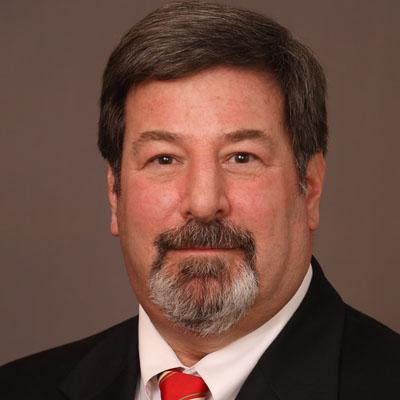

An avid golfer, who doesn’t play as much as he’d liked to anymore, David Weinstein might not have hit a hole in one—yet—but he is certainly right on par for a successful, well-lived life. Fulfilled both personally and professionally, he has few regrets and plenty to look forward to. Weinstein credits his decades-long affiliation with Pace University for much of this good fortune, and pays it forward in multiple ways. He, and his father, established the Gloria G. Weinstein Scholarship Fund in his aunt’s name in 2002 for students pursuing a degree in history at Dyson; he is a charter Advisory Board Member for the Dyson College of Arts and Sciences; and he supports the Professor James Holmes International Travel Fund for history, political science and economics students at Pace’s Pleasantville campus. He currently teaches courses in valuations and finance at the University’s Lubin School of Business.
Weinstein grew up just 10 miles south of Pace’s Pleasantville campus. An active and involved above-average student, he recalls his high school English teacher encouraging him to “always try and do better” – a mantra that has stuck throughout his academic and professional life. Hard work and the highest respect for education runs in his DNA: Weinstein’s paternal grandmother was one of few women to attend university in Russia in the early 1900s. His greatest inspiration has been his father—a first generation American who rose from humble beginnings to become one of the Managing Partners at Deloitte, one of the largest professional services firms in the world.
Weinstein transferred to Pace University for family reasons at the beginning of his sophomore year. It was a serendipitous turn of events that developed into lifelong relationships with peers and faculty. As he describes it, “I didn’t choose Pace, Pace chose me.”
Weinstein enthusiastically endorses his Pace experience as a life-shaping one.
His father, also an adjunct professor at Pace University at the time, introduced the young transferee to then provost Joseph Pastore, PhD and to James Holmes, PhD, professor and chair of the Social Sciences Department. “Jim Holmes was my most influential mentor,” says Weinstein. “He was a guiding hand, a wonderful resource and mentor; we had a very special relationship.” He recalls Holmes fondly, in particular the research program to which six or eight of his most promising political science or history students were invited for weekly round-table discussions in his home. It was an unorthodox format for a three-credit course, which sparked free thought and an open discourse on topics the students chose themselves. This was the late 1970s—a time of great political change: post-Nixon, late in the Carter administration, Ronald Reagan on the horizon and with the Cold War still raging. There was much to debate. Innovative and stimulating, the program imbued the group with a sense of pride and privilege; being part of “Jim’s inner circle” was very exciting.
To this day, Holmes’s seminars live on. He continued hosting an annual seminar each President’s Day weekend in his Rhinebeck home with a similar format of open discussion. Even after Holmes’s death in 2011, the group stayed in touch, meeting annually, on President’s weekend of course, on the Pace campus in Pleasantville, keeping Holmes’s legacy and their connection alive. Weinstein acknowledged he is one of a very few participants with careers in corporate business; most are lawyers, in the State Department and the CIA. He muses: “the stories about how these guys spend their days are dramatically different from how I spend mine!”
Weinstein hit his stride in Pace University’s close-knit environment. He relished the opportunity to work one-on-one with Professor Holmes and other dedicated faculty of Dyson and developed personal relationships with many of them as well. Becoming more and more involved in campus life, he was a residential advisor for two years, joined many on-campus clubs, and became president of the Student Government in his senior year. He graduated magna cum laude in 1982. Looking back on what might have been a potentially challenging transfer, Weinstein remarks philosophically: “Every adversity is an opportunity.”
With a degree in political science and economics from Dyson College, Weinstein’s original plan was to attend law school. Instead, he decided to take a break from academics. “I just didn’t want to be in college any more—at least not right away.” His father encouraged him to enroll in one of the then big banks’ corporate finance training programs that offered attractive opportunities to college graduates. He would acquire a thorough background in business that could be widely applied. “In those days,” Weinstein recalls, “the bigger banks were less concerned about whether or not you had an undergraduate degree in finance, and more focused on your capacity to learn.” His impressive grades at Pace gave the right message: Weinstein was a hard worker with the intellect and willingness to learn. The credits he earned in the Bankers Trust training program were applied to a masters in business administration (MBA), majoring in what else but finance, which he received from the Lubin School of Business in 1991. For the next six years, Weinstein enjoyed living in New York City, developing a network of connections and a reputation for excellence and integrity in the business world.
“Knowing I’m helping future generations and contributing with the scholarship I set up is extremely meaningful.”
“I’ve been in finance for 35 years now,” said Weinstein, “working both sides of finance: representing companies borrowing money as a consultant and working for banks lending them money. I’ve learned a tremendous amount—in fact, I’m always learning.” Throughout his career, Weinstein’s father has been a constant advisor, offering guidance and the benefit of his experience. “There are really very few meaningful mentoring relationships left within the banking world, times are a bit different now,” he added. I’ve been fortunate to always have my dad’s support and sound advice.” After his father retired and opened his own consultancy, the two often collaborated, sharing ideas and referring clients.
When asked how surviving and succeeding in the financial world today compares with his own experience, Weinstein noted how technology has changed the process dramatically. The ability to transfer files electronically and work from home relieves the necessity of staying in the office until all hours. “You can be home for dinner, and finish up your work afterwards. “But, like everything else, there is a trade off. You have flexibility, but technology follows you everywhere. You’re never out of touch.” He remembers wryly responding to work-related emails from the Galapagos Island while vacationing with his family. Nevertheless, technology allows for more of a work/life balance, and he believes socially savvy companies are smart to recognize the importance of that to their employees.
For a time he worked for Arthur Andersen, which was then considered the crème de la crème of the big five accounting /consulting firms. The job involved constant travel, flying off on Sunday nights and returning home on Thursdays. He was the quintessential road warrior. His two sons were very young, and it was difficult to be away so much leaving his wife to handle it all. However, he was paying his dues with the goal of becoming partner. A light bulb moment struck when he realized the firm’s partners were still grinding out the same brutal schedule. That was not a lifestyle he aspired to. Weinstein moved back to banking and is currently a principal of a large asset management fund with various lending platforms for commercial and institutional clients. He has carved out a work/life balance that gives him time for family, vacations, involvement in community and professional organizations.
He has served on the board of his synagogue for 14 years and was treasurer for seven of those years; is a past-president of the New York City chapter of his industry’s professional organization, the Turnaround Management Association, and is currently president of its Connecticut Chapter. He has been widely recognized by his peers for his leadership and skills. “I might not be a multi-billionaire, but I’m perfectly content with being honest and respected, playing by the rules, not pushing the envelope,” he muses.
Weinstein enthusiastically endorses his Pace experience as a life-shaping one. Therefore, when Nira Hermann, then dean of the Dyson College of Arts and Sciences, told him she was putting together an advisory board in 2007, he jumped at the opportunity. “It felt like the answer to a call,” he says. Weinstein has seen the Board evolve into a highly functional group of very focused and interested members. “Knowing I’m helping future generations and contributing with the scholarship I set up is extremely meaningful.”
How does David Weinstein unwind? Binge watching The West Wing or keeping up with Madame Secretary, both political dramas; The Big Bang Theory and Two and a Half Men just for laughs and The Shark Tank to stay current on business. He is married to his wife of 31 years and has two boys, both college graduates in their own right. His wife also earned an MBA from Pace, but in marketing.
What does he collect? Dozens of golf balls catalog the courses he has played; those with corporate logos tell tales of companies that have come and gone.
What’s on his bucket list? “Well I’ve been to Scotland and to St. Andrews and saw the Old Course but would love to go back and play the Old Course one day!” Perhaps he will get that hole in one yet.
